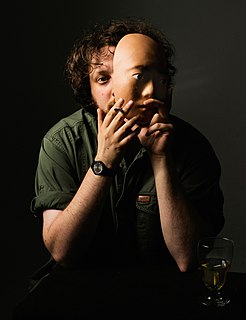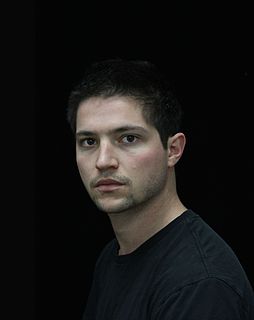A Quote by Elijah Wood
The war is definitely in the background, only referred to in radio news blips and conversation. I think, ultimately, this film is about the choices these guys are faced with. In that way, I think this is a more personal story about their friendship, about the reaction that they have when they're essentially faced with death, to a certain degree.
Related Quotes
I think, if you can only talk about your stuff in a jargonistic way, you're not as smart as you think. You're alienating people who deserve to have a conversation, or a place in the conversation. If you take the complete inverse and are staunchly anti-intellectual, then I think there's a certain amount of resentfulness in that. There's something about that standpoint that feels a little bit insecure.
We should think more about it, and accustom ourselves to the thought of death. We can't allow the fear of death to creep up on us unexpectedly. We have to make the fear familiar, and one way is to write about it. I don't think writing and thinking about death is characteristic only of old men. I think that if people began thinking about death sooner, they'd make fewer foolish mistakes.
I think that to me, films are personal affairs. It doesn't mean that I am against other people doing things differently, but I'm talking about what I can do. So I don't feel comfortable going to a new city or a certain class of which I don't have sufficient knowledge, doing research on that, and then writing a story about it I don't think I have the ability of presenting other people on screen in that way. It makes me uncomfortable. This doesn't mean that I only want to talk about myself. I want to talk about what I know.
The idea of transformation is super-important to me. You can see it in the way I approach things. I have never been a clean-faced, freshly scrubbed hair person. I'm the New York designer who doesn't do that. I think about the hair and makeup almost as much as I think about the clothes because it all has to work.
Thinking about making a love story without music was really frightening, Sciamma admitted. Because every love story we know, we think about 'Titanic' we think about the music, we think about 'Gone with the Wind' we think about the music, we think about 'E.T.' we think about the music, and every love story has its own tune, 'That's our song.'
There are a lot of polls that show that actually Americans have a pretty high opinion of teachers, that Americans think teachers are just about as prestigious as doctors. And yet there's this political conversation - this reform conversation - that paints a very negative picture of the effectiveness of the teaching population. So there's definitely a tension between the way teaching is talked about and understood at the political level and how everyday average Americans think about teachers.




































